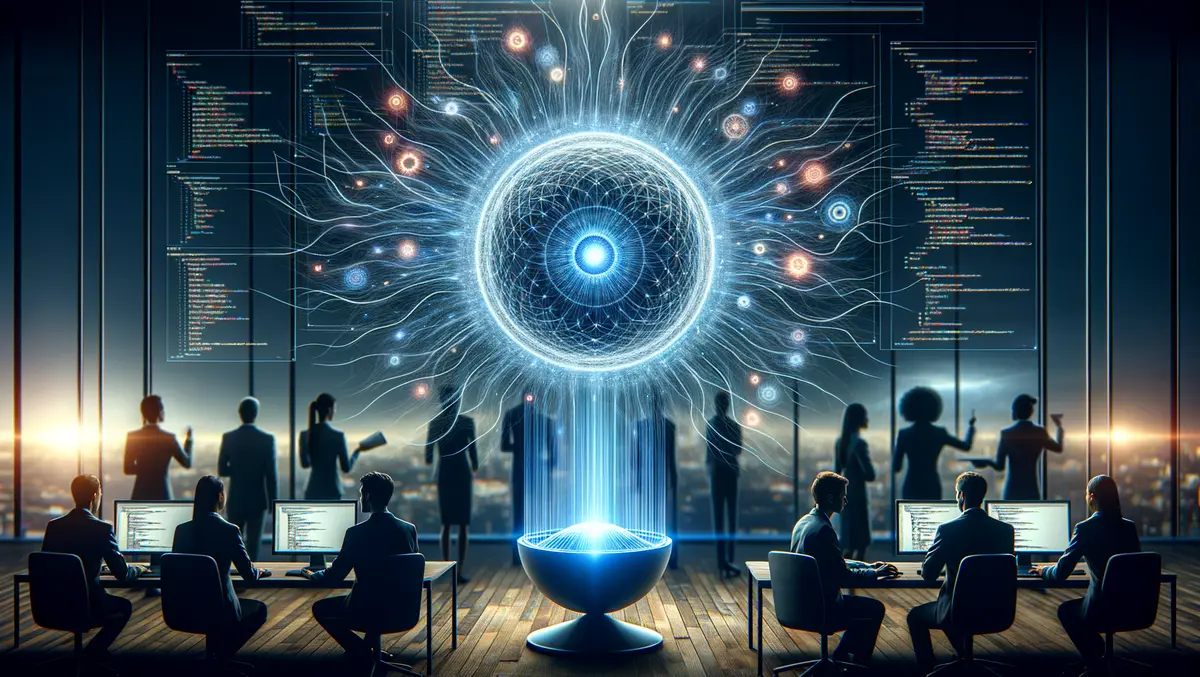SmartBear has unveiled HaloAI, a new AI-driven technology designed to revolutionise software development and testing processes. This innovation is set to deploy across SmartBear's product portfolio, leveraging generative AI technology to tackle complex issues and automate tasks traditionally handled manually.
According to the company's announcement, HaloAI aims to enhance productivity and development speed by automating repetitive and error-prone tasks. Frank Roe, CEO of SmartBear, emphasised the transformative potential of HaloAI, noting that it catalyses smarter work and amplifies creative and strategic capabilities in development teams. He added that this technology helps teams stay competitive in the rapidly evolving tech landscape.
The introduction of HaloAI is timely, given the ongoing shortage of skilled development and testing professionals. With millions of technical positions currently unfilled and projections showing this deficit could reach 85.2 million by 2030, HaloAI provides a solution by enabling teams to achieve more with fewer resources. A recent survey by SmartBear found that 86% of developers and testers expect AI to drive increased demand for quality assurance and testing.
William Turner, Vice President of Quality and Support at Aras Corporation, commented on the focus on customer experience that underpins the use of AI at SmartBear. He noted that the goal is not to replace personnel but to enhance their ability to perform, thus improving operational efficiency.
In its beta program, HaloAI has already demonstrated significant potential. Users of SmartBear's Zephyr Scale reported saving thousands of hours in just the first two weeks by automating test cases. This process did not require the manual scripting previously necessary for automation. One QA team managed to automate half of their 500 manual tests, each averaging five minutes, compressing test execution to five seconds and saving 20 hours per regression cycle.
Melinda Ballou, Research Director for Agile ALM, Quality, and Portfolio Strategies at IDC, supported the significance of AI in software testing. She highlighted that effective quality and testing strategies are crucial as AI and generative AI become more integrated into software development. Key areas of focus for improving efficiency include test prioritisation, identifying the root cause of failures, and enhancing test case and process maintenance.
HaloAI is the latest advancement in SmartBear's AI strategy. Last year, the company introduced AI-powered automated regression testing, which helps developers detect visual defects. Earlier this year, SmartBear acquired Reflect, an AI-powered provider, to integrate generative AI into Jira-native test management. These advancements are now coming together under the HaloAI umbrella.
SmartBear is also simplifying the developer experience by integrating teams' preferred tools in intuitive solution hubs enhanced by HaloAI. This integration aims to provide teams with the visibility needed to build, test, release, and monitor software confidently, ensuring high-quality user experiences.
The launch of HaloAI demonstrates SmartBear's commitment to innovation in software development, the company states. SmartBear continues to prioritise ethical practices, including accountable and transparent AI, while promoting social responsibility within the communities it serves.



